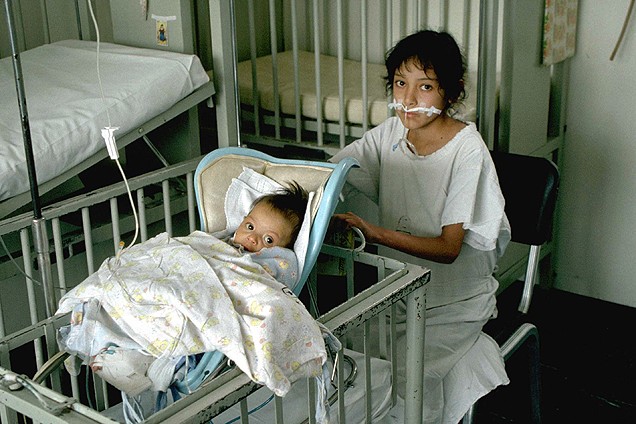Suffering from a serious illness extends far beyond physical symptoms. Palliative care addresses this broader spectrum of needs, and central to this approach are palliative care programs. But what exactly are palliative care programs? These programs represent a holistic and patient-centered approach to healthcare, specifically designed to improve the quality of life for individuals and their families facing life-limiting illnesses. Instead of solely focusing on curing the disease, palliative care programs provide comprehensive support to manage pain and other distressing symptoms, while also addressing emotional, social, and spiritual needs. Recognized as a human right, these programs are essential for ensuring dignity, comfort, and the best possible quality of life for patients dealing with serious health challenges.
Defining Palliative Care Programs: A Multifaceted Approach
Palliative care programs are structured systems of care that utilize a team-based approach to support patients and their caregivers. This multidisciplinary team typically includes doctors, nurses, social workers, counselors, and other healthcare professionals working collaboratively to provide integrated care. The core aim of these programs is to offer a support system that helps patients live as actively and comfortably as possible until the end of life.
Key components of palliative care programs include:
- Symptom Management: Effective control of pain, shortness of breath, fatigue, nausea, and other distressing physical symptoms is a primary focus. This may involve medication, therapies, and other interventions tailored to the individual’s needs.
- Emotional and Psychological Support: Programs provide counseling and emotional support for patients and their families to cope with the emotional distress, anxiety, and depression that can accompany serious illness.
- Social and Practical Support: Addressing practical needs such as financial concerns, accommodation, and daily living challenges is crucial. Social workers within the team assist in navigating these complexities.
- Spiritual Care: For many, spiritual well-being is an important aspect of quality of life. Palliative care programs offer spiritual support that respects individual beliefs and values.
- Bereavement Support: Extending care to families even after the patient’s death is a vital aspect. Bereavement counseling helps caregivers cope with grief and loss.
Palliative care programs are not limited to any specific disease. While often associated with cancer care, they are beneficial for a wide range of chronic and life-threatening conditions. The World Health Organization (WHO) highlights that the majority of adults needing palliative care suffer from conditions such as cardiovascular diseases, cancer, chronic respiratory diseases, AIDS, and diabetes. Other conditions that may necessitate palliative care include kidney failure, chronic liver disease, neurological diseases like multiple sclerosis and Parkinson’s, dementia, and even drug-resistant tuberculosis.
The Importance of Palliative Care Programs: A Human Right and Ethical Imperative
Access to palliative care is explicitly recognized as a human right. It is not merely about end-of-life care; rather, effective palliative care programs should be integrated early in the course of a serious illness. Early integration leads to significant improvements in the patient’s quality of life. It allows for proactive symptom management, better emotional preparation for the future, and a more coordinated approach to care.
Moreover, providing palliative care is considered an ethical duty for healthcare professionals. Controlling distressing symptoms like pain and breathlessness is crucial for relieving suffering and respecting a person’s dignity. For example, studies indicate that a significant percentage of patients with AIDS, cancer, cardiovascular disease, or chronic obstructive pulmonary disease experience moderate to severe pain at the end of their lives. Palliative care programs are designed to address these needs effectively, often utilizing opioid analgesics for pain management, alongside other strategies.
Addressing the Gap: Insufficient Access to Palliative Care Programs Globally
Despite the recognized need and ethical imperative, access to palliative care programs remains insufficient worldwide. The WHO estimates that millions of people are in need of palliative care each year, with a disproportionate number residing in low- and middle-income countries. Children are particularly affected, with the vast majority of those needing pediatric palliative care living in resource-limited regions.
Several significant barriers contribute to this unmet need:
- Lack of National Policy Integration: Many national health policies and systems fail to adequately integrate palliative care services into their frameworks and funding structures.
- Limited Training for Healthcare Professionals: Education and training on palliative care for doctors, nurses, and other health professionals are often lacking or insufficient.
- Inadequate Access to Essential Medicines: Access to opioid pain relief, a cornerstone of palliative care, is often restricted due to regulatory hurdles and misconceptions, despite international guidelines advocating for their availability.
- Low Awareness and Misconceptions: Lack of awareness among policymakers, healthcare providers, and the general public about what palliative care programs entail and their benefits perpetuates the problem. Misconceptions, such as palliative care being solely for cancer patients or only for the last days of life, further limit its utilization.
- Cultural and Social Barriers: Cultural beliefs and social attitudes surrounding death and dying can also impede the acceptance and utilization of palliative care services.
- Concerns about Opioid Misuse: Unfounded fears that improving access to opioid analgesia will lead to increased substance abuse create unnecessary barriers to pain management.
Improving Access: Steps to Strengthen Palliative Care Programs
To bridge the gap and ensure equitable access to palliative care programs, countries need to take proactive steps to integrate these services into their national health systems. This integration should encompass prevention, early detection, treatment, and palliative care as a continuum of care for individuals with chronic and life-threatening conditions.
Key actions for countries include:
- Developing and Implementing National Policies: Health system policies are needed to formally integrate palliative care services into the structure and financing of national healthcare systems at all levels of care, from primary care to specialized services.
- Investing in Human Resources and Training: Strengthening the healthcare workforce through comprehensive training programs is essential. This includes incorporating palliative care education into the core curricula of all new health professionals, as well as providing ongoing training for existing practitioners and educating community volunteers.
- Ensuring Access to Essential Medicines: Medicines policies must guarantee the availability of essential medications for symptom management, particularly opioid analgesics for pain and respiratory distress. This requires streamlining regulations and addressing misconceptions surrounding opioid use in palliative care.
- Raising Awareness and Education: Public awareness campaigns and educational initiatives are crucial to dispel myths about palliative care programs and highlight their benefits to patients, families, and the healthcare system as a whole.
Palliative care programs should be provided in accordance with the principles of universal health coverage. This means that access should be available to all people, regardless of income, disease type, or age. Financial and social protection systems should recognize the human right to palliative care, especially for vulnerable and marginalized populations. Integrating palliative care into primary healthcare, community-based care, and home-based care models is also crucial for sustainability and accessibility, alongside specialist palliative care services.
WHO’s Commitment to Palliative Care Programs
The World Health Organization (WHO) plays a leading role in promoting and supporting the development of palliative care programs globally. Recognizing palliative care as a global health priority, the WHO has undertaken various initiatives, including:
- Including palliative care medicines in the WHO Essential Medicines List.
- Advocating for palliative care in global mandates and strategies related to universal health coverage and noncommunicable diseases.
- Developing guidelines and tools for integrated palliative care across different diseases and levels of care.
- Supporting member states in improving access to palliative care medicines.
- Focusing on specific populations, such as people living with HIV and children.
- Monitoring global palliative care access and progress.
- Encouraging resource allocation for palliative care programs and research.
Through these efforts, the WHO aims to empower countries to strengthen their palliative care programs and ensure that everyone in need has access to compassionate and comprehensive care. By understanding what palliative care programs are and advocating for their expansion, we can collectively work towards a future where suffering is minimized, and dignity is preserved for all individuals facing serious illness.

